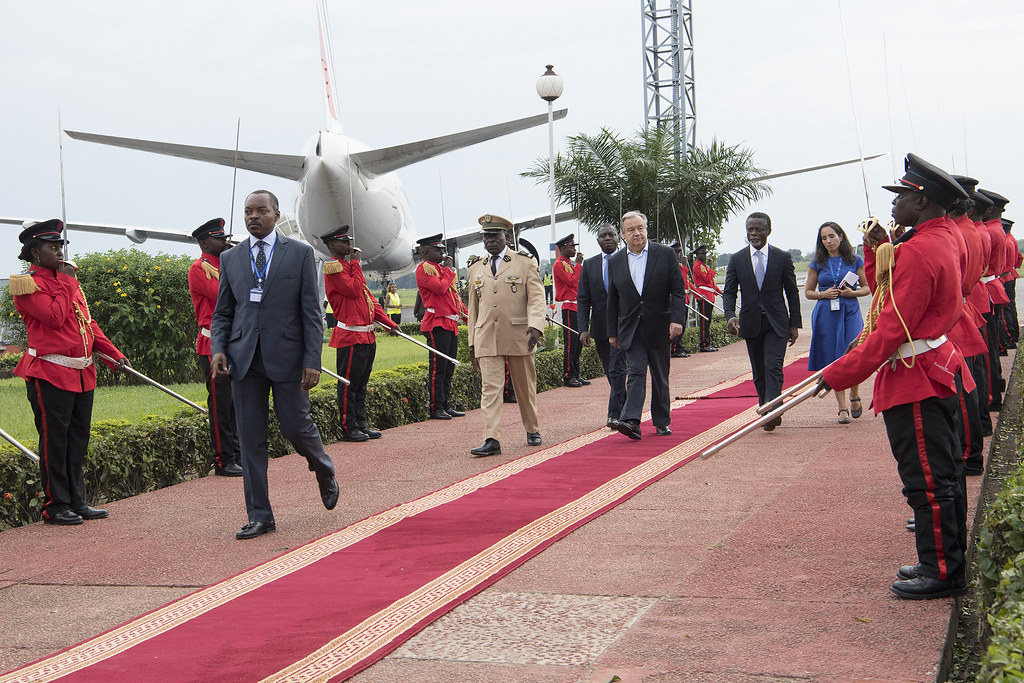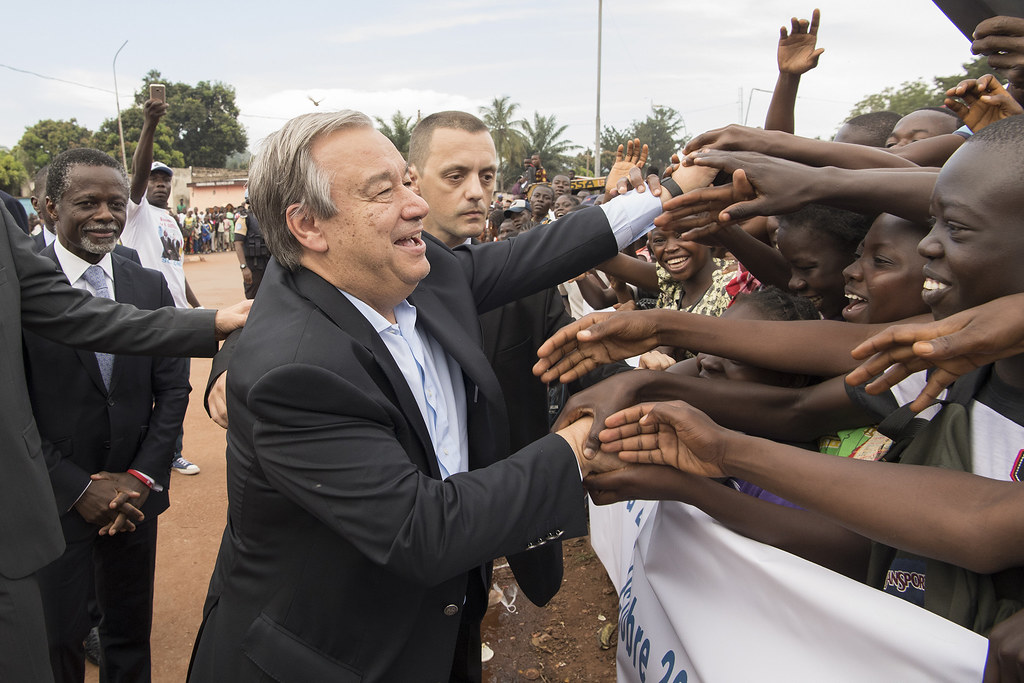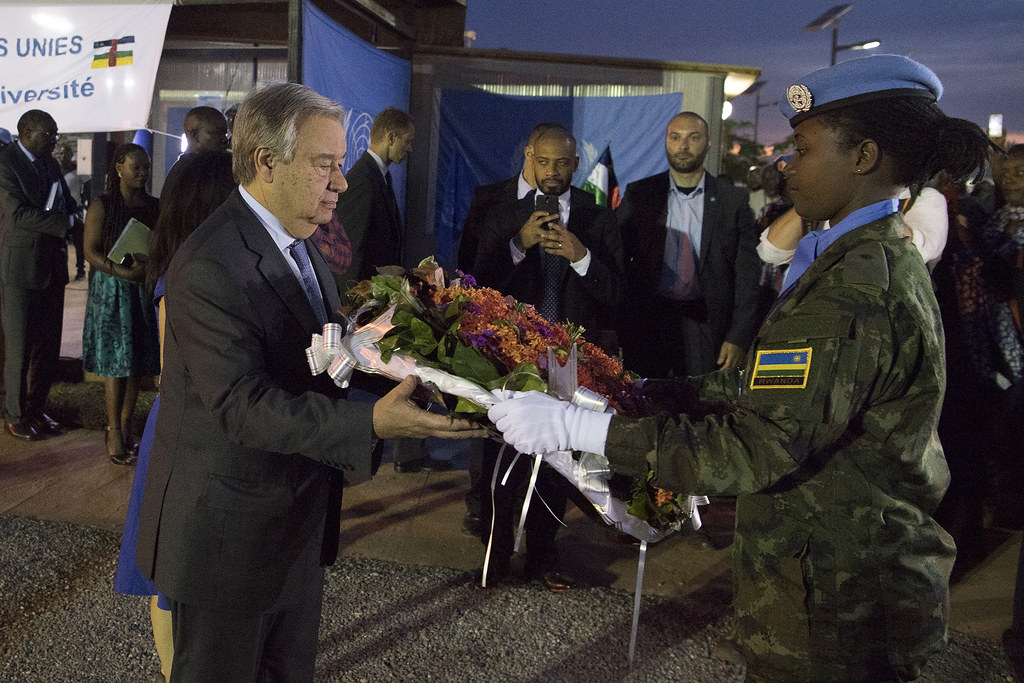Marking UN Day in Central African Republic, Secretary-General honours peacekeepers
24 October 2017 – Commemorating United Nations Day alongside UN peacekeepers in the Central African Republic, Secretary-General António Guterres on Tuesday paid tribute to the sacrifices made by uniformed personnel in the service of peace.
“I want to say that we need to make sure that the world fully appreciates the heroic contributions of peacekeepers protecting civilians, sometimes in extremely difficult circumstances, like the ones we face in the Central African Republic,” said Mr. Guterres at a wreath-laying ceremony for peacekeepers in the country’s capital, Bangui.
He said these ‘blue helmets,’ as UN peacekeepers are informally known, work where sometimes the peace is elusive, which means that they die, are wounded, and sacrifice their lives to protect civilians.
Noting that women and men of the UN police and military forces are the UN brand in the world, he said “your sacrifice is something that the UN will always honour.”
The 24th of October, the day in 1945 when the Charter of the United Nations entered into force, is celebrated annually as UN Day. In 1971, the General Assembly recommended that the day be observed by UN Member States as a public holiday.
At UN Headquarters in New York, the Organization’s Department of Public Information will organize a concert featuring the Slovak National Folklore Ballet, Lúènica.
The theme of the concert is ‘Potential in Diversity’ and is sponsored by the Permanent Mission of Slovakia to the UN.
Also, Deputy Secretary-General Amina J. Mohammed, on behalf of the Secretary-General, will present the 2017 Secretary-General Awards in categories, including innovation and creativity; implementing efficiencies; gender equality and parity; and champion of the Sustainable Development Goals (SDGs).
Mr. Guterres, in his first UN Day message, called on people around the world to overcome their differences to address global challenges that go beyond national borders.
“Our world faces many grave challenges. Widening conflicts and inequality, extreme weather and deadly intolerance, [and] security threats – including nuclear weapons,” said Mr. Guterres in a video message.
“We have the tools and wealth to overcome these challenges. All we need is the will.”
In his message, the UN chief stated that the challenges faced by the world transcend borders and, therefore, everyone needs to transcend their differences to transform our future.
“When we achieve human rights and human dignity for all people – they will build a peaceful, sustainable and just world,” he added, urging humanity – noted in the UN Charter as ‘We the Peoples’ – to make this vision a reality.



